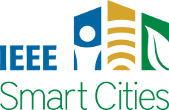Open Source and Open Standards for Digital Twins
Presented By: Ulrich Ahle
Our new digital life will more and more gravitate around context information describing what is happening, when, where, and why. Managing this information in a Digital Twin will provide us with capabilities to improve the quality of life of people living in cities or regions. At the same time, it will be possible to reduce the cost of operating a city. But today this data and Context Information are very often organized in silos without the chance to use them for other smart solutions. Open standards for APIs and data models have the capability to break down these silos. In combination with Open Source such approaches have the potential to also reduce the ‘vendor-lock-in effect’ and to provide the lowest cost of ownership to the end user. All of this needs to be operated based on a trusted environment. GAIA-X will provide this Data Sovereignty on all levels for a trustful management of Digital Twin data.
Click Here to StreamDownload Slides
Who Should Attend?
- System Integrators (startups, SME, Corporates), Developers, CDO / CIO in Cities, Policy makers
About the Speaker
 Ulrich Ahle is a reputed executive in the IT sector, formerly Vice President and leader of the Manufacturing and Industry 4.0 System Integration business at Atos in Germany. He is also founder and member of the Board of the International Data Spaces Association in Germany and served 16 years in the Board of the prostep IVIP organization until April 2018. After an apprenticeship as toolmaker at Hella KG, he studied Mechanical Engineering at the University of Paderborn. In his career, Ahle held several positions as development engineer, Director of PLM services, sales director, and Vice President. He has been part of Nixdorf Computer AG, Siemens, and Atos. Since January 2017 Ulrich Ahle is Chief Executive Officer of the FIWARE Foundation headquartered in Berlin, Germany.
Ulrich Ahle is a reputed executive in the IT sector, formerly Vice President and leader of the Manufacturing and Industry 4.0 System Integration business at Atos in Germany. He is also founder and member of the Board of the International Data Spaces Association in Germany and served 16 years in the Board of the prostep IVIP organization until April 2018. After an apprenticeship as toolmaker at Hella KG, he studied Mechanical Engineering at the University of Paderborn. In his career, Ahle held several positions as development engineer, Director of PLM services, sales director, and Vice President. He has been part of Nixdorf Computer AG, Siemens, and Atos. Since January 2017 Ulrich Ahle is Chief Executive Officer of the FIWARE Foundation headquartered in Berlin, Germany.
Tags & Topics for This Webinar:
- Smart City; Open Source; standard API; smart-data-models

